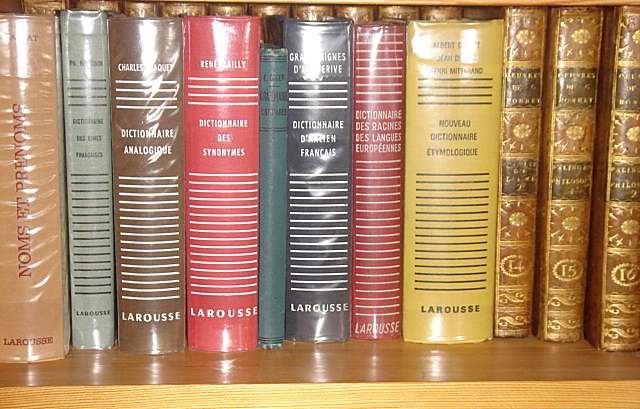Specialized dictionary on:
[Wikipedia]
[Google]
[Amazon]
 A specialized dictionary is a
A specialized dictionary is a
 A specialized dictionary is a
A specialized dictionary is a dictionary
A dictionary is a listing of lexemes from the lexicon of one or more specific languages, often arranged Alphabetical order, alphabetically (or by Semitic root, consonantal root for Semitic languages or radical-and-stroke sorting, radical an ...
that covers a relatively restricted set of phenomena. The definitive book on the subject (Cowie 2009) includes chapters on some of the dictionaries included below:
*synonym
A synonym is a word, morpheme, or phrase that means precisely or nearly the same as another word, morpheme, or phrase in a given language. For example, in the English language, the words ''begin'', ''start'', ''commence'', and ''initiate'' are a ...
s
*pronunciations
*names (place names and personal names)
*phrases and idiom
An idiom is a phrase or expression that largely or exclusively carries a Literal and figurative language, figurative or non-literal meaning (linguistic), meaning, rather than making any literal sense. Categorized as formulaic speech, formulaic ...
s
*dialect terms
*slang
*quotations
*etymologies
Etymology ( ) is the study of the origin and evolution of words—including their constituent units of sound and meaning—across time. In the 21st century a subfield within linguistics, etymology has become a more rigorously scientific study. ...
* rhymes
*lyrics
Lyrics are words that make up a song, usually consisting of verses and choruses. The writer of lyrics is a lyricist. The words to an extended musical composition such as an opera are, however, usually known as a "libretto" and their writer, ...
Dictionaries of idioms and slang are common in most cultures. Examples include (of French) the ''Dictionnaire des expressions et locutions'', edited by Alain Rey (Paris: Le Robert 2006), and (of English) Eric Partridge
Eric Honeywood Partridge (6 February 1894 – 1 June 1979) was a New Zealand–United Kingdom, British lexicography, lexicographer of the English language, particularly of its slang. His writing career was interrupted only by his service in the ...
's ''Dictionary of Slang and Unconventional English'' (8th edition, London: Routledge 2002). In the area of language learning
Language acquisition is the process by which humans acquire the capacity to perceive and comprehend language. In other words, it is how human beings gain the ability to be aware of language, to understand it, and to produce and use words and ...
, there are specialized dictionaries for aspects of language which tend to be ordinary for mother-tongue speakers but may cause difficulty for learners. These include dictionaries of phrasal verb
In the traditional grammar of Modern English, a phrasal verb typically constitutes a single semantic unit consisting of a verb followed by a particle (e.g., ''turn down'', ''run into,'' or ''sit up''), sometimes collocated with a preposition (e. ...
s, such as the ''Oxford Phrasal Verbs Dictionary'' (2nd edition, Oxford University Press: 2006), and dictionaries of collocation
In corpus linguistics, a collocation is a series of words or terms that co-occur more often than would be expected by chance. In phraseology, a collocation is a type of compositional phraseme, meaning that it can be understood from the words t ...
, such as ''Macmillan Collocations Dictionary'' (Oxford: Macmillan 2010).
One of the most common types of specialized dictionary is what is often referred to in English as a technical dictionary and in German as a Fachwörterbuch. These dictionaries cover the terminology
Terminology is a group of specialized words and respective meanings in a particular field, and also the study of such terms and their use; the latter meaning is also known as terminology science. A ''term'' is a word, Compound (linguistics), com ...
of a particular subject field or discipline. As described in Nielsen (1994), dictionaries of this type can be classified in various ways. A dictionary that covers more than one subject field is called a multi-field dictionary; one that covers one subject field is called a single-field dictionary; and one that covers a limited part of a subject field is called a sub-field dictionary. A technical dictionary that attempts to cover as much of the relevant terminology as possible is called a maximizing dictionary, whereas one that attempts to cover only a limited part of the relevant terminology is called a minimizing dictionary.
Specialized dictionaries can have various functions, i.e. they can help users in different types of situation. Monolingual dictionaries can help users understand and produce texts, whereas bilingual dictionaries can help users understand texts, translate texts and produce texts, as described in e.g. Nielsen (1994) and Nielsen (2010).
See also
* LexigrafReferences
Further reading
*Cowie, A.P. (ed.) (2009): ''The Oxford History of English Lexicography: Volume II Specialized Dictionaries'', Oxford: Oxford University Press. *Henning Bergenholtz/Sven Tarp (eds.) (1995): ''Manual of Specialised Lexicography''. Benjamins. *Sandro Nielsen (1994): ''The Bilingual LSP Dictionary''. Gunter Narr. *Sandro Nielsen (2010): "Specialised Translation Dictionaries for Learners". In: P. A. Fuertes-Olivera (ed): ''Specialised Dictionaries for Learners''. Berlin/New York: de Gruyter, 69–82. {{DEFAULTSORT:Specialized Dictionary Dictionaries by type